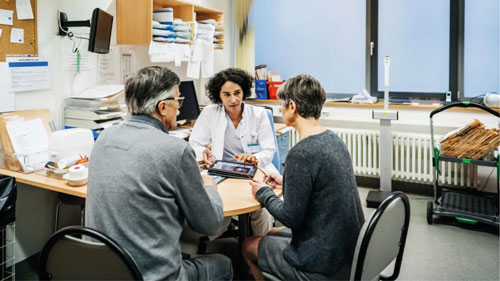Experts say many older adults are not taken seriously when they report symptoms and other conditions to medical professionals.
They say health ageism is growing and needs to be addressed. They urge older adults to prepare for medical appointments and bring along another person when possible to help advocate. It took 4 months, 3 biopsies, and a whole lot of cajoling for Leah Wooten of Louisiana to get a diagnosis of pancreatic cancer for her husband, Tom.
Wooten, an experienced nurse, blames their ages. While they were both, at the time, only in their 60s, Wooten said she felt the medical teams they met with took their reported symptoms less seriously.
“It always seems like, the older you get, the less they listen to you,” Wooten told Healthline.
Could a faster diagnosis have helped her husband live longer than the year and a half he did after that diagnosis? Wooten will never know.
But she’s sure of one thing: Ageism played a role in those 4 months, something she looks back on and sees as “torture.” “We’d been together so long,
I just knew something was not right,” she said. Now a widow, Wooten is angry at that treatment and wants other older adults to be sure to advocate and push as she did.
She’s not alone. With society living longer – and more seniors facing medical issues – reports of what people see as ageism are growing.
Mary Cissel says she also felt the impact of medical ageism. Four years ago, Cissel felt sluggish and gained weight she could not shed.
She was a long-time exerciser who knows her body, but she was told by doctors that her worries about a medical reason were unfounded.
“They said, ‘you’re getting older – just work out more,’” she remembered. “I was already eating 600 calories less a day and running more. I know how to eat. I know how to exercise. I know how to lose weight.“
Cissel searched until she found a doctor who would listen. Thyroid surgery fixed her condition. But she wonders now: What if she’d not pushed? And how could those other medical experts have pushed off her worries so readily? “[They] allowed me to go through torture,” Cissel told Healthline.
“If I was a younger woman, would [they] have done that?” Check your vitamin levels with a micronutrient test
This micronutrient test checks for vitamin B12, D, E, Magnesium, Copper, Selenium & Zinc.










